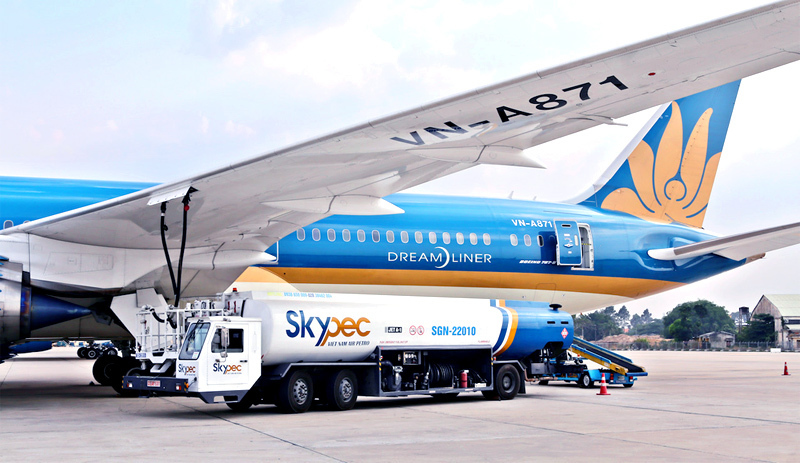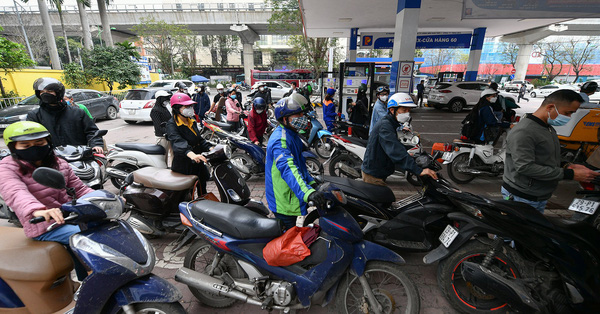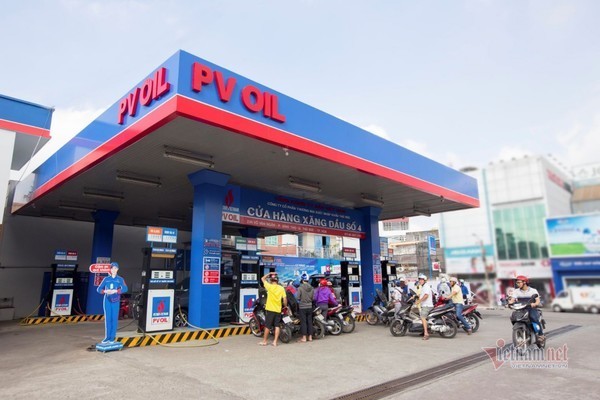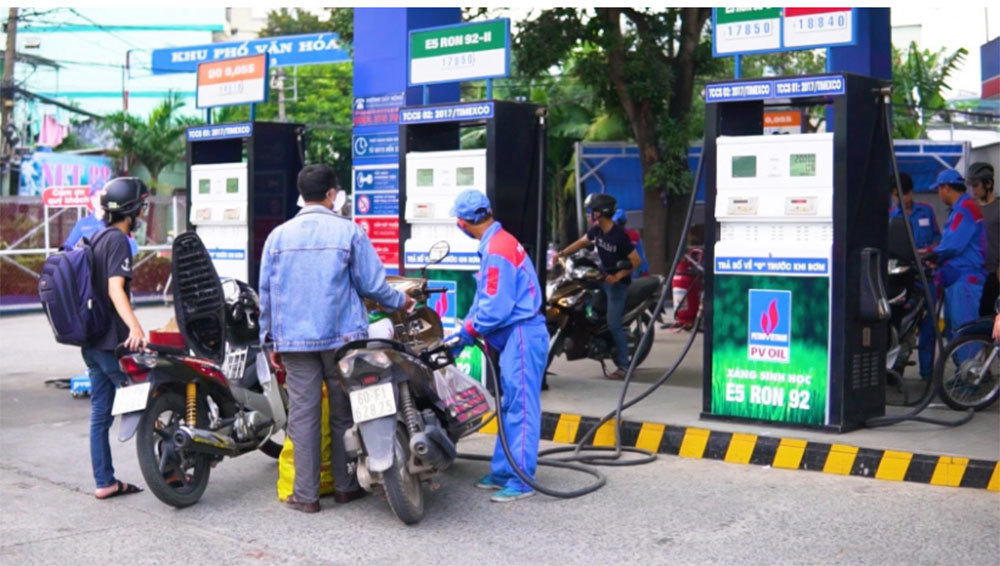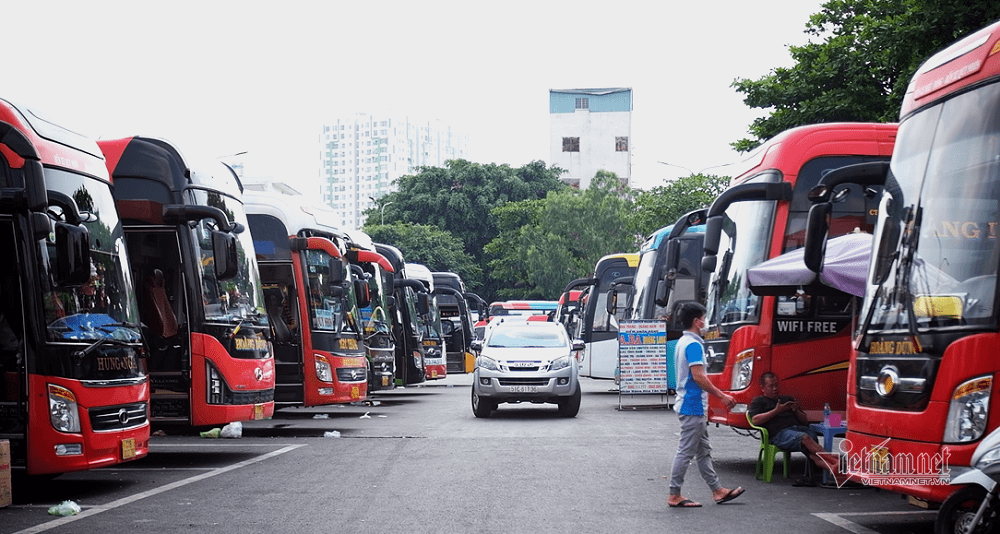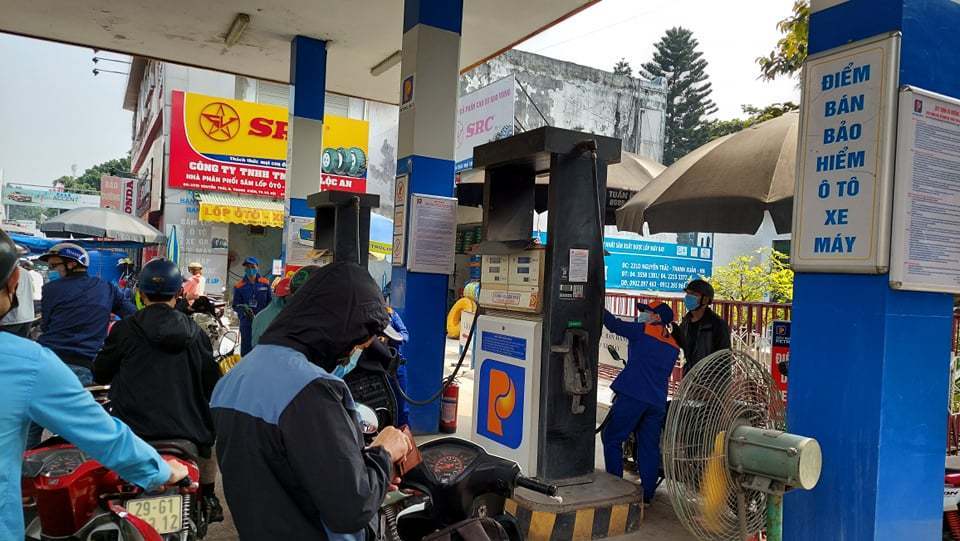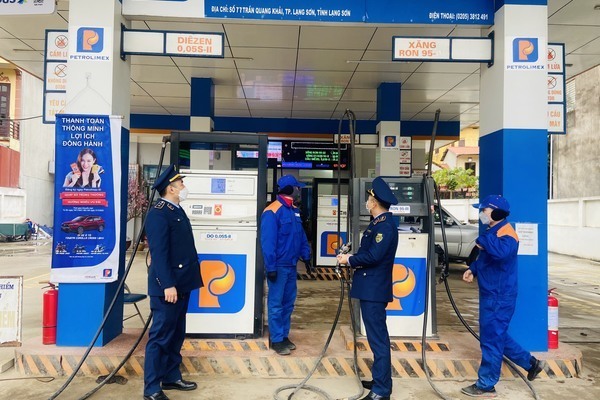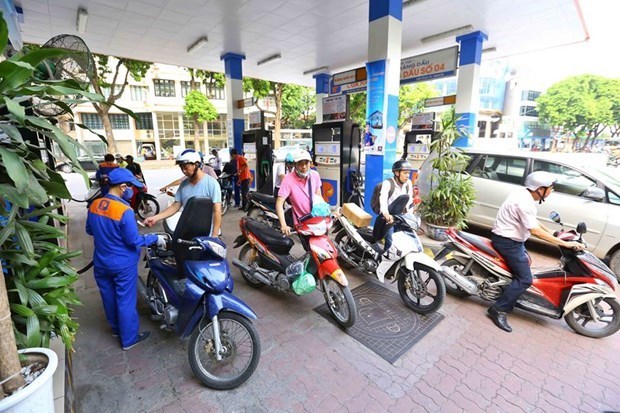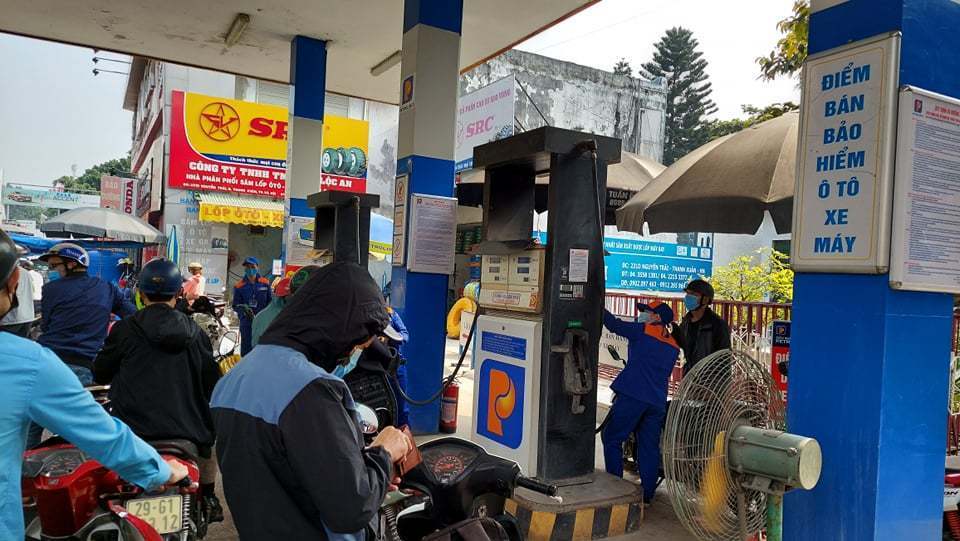- © Copyright of Vietnamnet Global.
- Tel: 024 3772 7988 Fax: (024) 37722734
- Email: [email protected]
petrol price
Update news petrol price
Soaring petrol price impacting multitude of industries
A surge in the world’s oil price is benefiting oil and gas businesses, but causing difficulties for other producers and pressurising the government’s efforts to rein in inflation.
NA Standing Committee adopts resolution on environmental protection tax rates
The National Assembly Standing Committee on March 23 passed the resolution on environmental protection tax rates on petroleum, oil and lubricants, which will take effect from April 1 till December 31, 2022.
As fuel prices rise, airlines seek to raise airfares
As fuel prices have increased sharply, airlines have called for the lifting of ceiling airfares and imposition of fuel surcharges.
What will Vietnam's economy be amid the 'storm' of commodity prices?
The world commodity market is fluctuating strongly, and supply chain disruption has led to concerns about inflation and economic growth.
Goods prices increase as petrol price rise
The petrol price hike, which has led to an increase in nearly all goods and services, from food to medicine to fertilizer, has caused consumers constant anxiety.
Taxi firms raise fares after petrol increases
E-riding firms have raised taxi fares, and traditional taxi firms are expected to follow the move.
Petrol price may reach VND30,000 per liter
The crude oil price in the world market has reached a 14-year high and is nearing $140 per barrel. Experts predict the petrol price may rise to $30,000 per liter if there is no price intervention.
VN transport firms hit by fuel price hikes
The fuel price has been increasing over the last two months, dealing another blow to transport firms that have not recovered from Covid-19.
Fuel price climbs to new high, Finance Ministry wants to amend environment protection law
The Ministry of Industry and Trade (MOIT) and Ministry of Finance (MOF) have raised the ceiling fuel prices for the March 1 review. This is the third consecutive price increase in the Year of the Tiger.
As petrol prices continue to increase, transport firms may reduce services
If petrol and DO prices continue to stay high, transport firms may have to reduce services and routes, or stop operation temporarily.
Vietnam’s petrol price 65th cheapest in world, but still expensive to consumers
Statistics show that petrol prices in Vietnam are lower than in many countries and territories. However, but people complain that the prices are too high.
Fuel supply sufficient, only 30 of 16,000 filling stations have stopped selling
Only 20-30 out of 16,000 filling stations nationwide have stopped selling petrol amid reports that fuel was running out, which has prompted people to rush to buy petrol for hoarding.
Petrol sales back to normal in HCMC
Representatives of retail petrol stations confirmed that they did not hoard gasoline to wait for the price to rise because, according to regulations, they must import petrol products to sell, even at a loss, and must sell out before they can close.
To curb petroleum prices, taxes, fees may need to be cut
If petroleum prices continue escalating, Vietnam will need to cut taxes and fees, in addition to using the petroleum price stabilization fund.
Vietnam determinedly regulates petrol business activities
Functional units in many localities yesterday continued to pay unexpected visits to gas stations in order to examine trading activities there and handle any possible hoarding, which is supposed to happen lately due to instability in input fuel price.
Petrol prices expected to jump
According to the Ministry of Finance’s Price Management Department, domestic petroleum prices may go up in the next review as a result of price increases in the world market.
After petrol, gas now sees price increase
The gas price on October 31 increased by another VND17,000, raising the price to VND500,000 for a 12 kilogram tank.
High taxes and fees cause jump in petrol prices
Taxes and fees make up nearly 40 percent of the petrol price. The environmental protection tax is now at the ceiling level.
Petrol price hike puts pressure on consumers, threatens inflation
The prices of goods and services have begun escalating following a shocking hike in petrol price, reaching a 7-year high, announced by petroleum distributors on October 25.
Tax cut proposed to stabilise domestic petrol price
Calls have been made for tax cuts to stabilise domestic fuel prices as global oil prices see continual increases.


